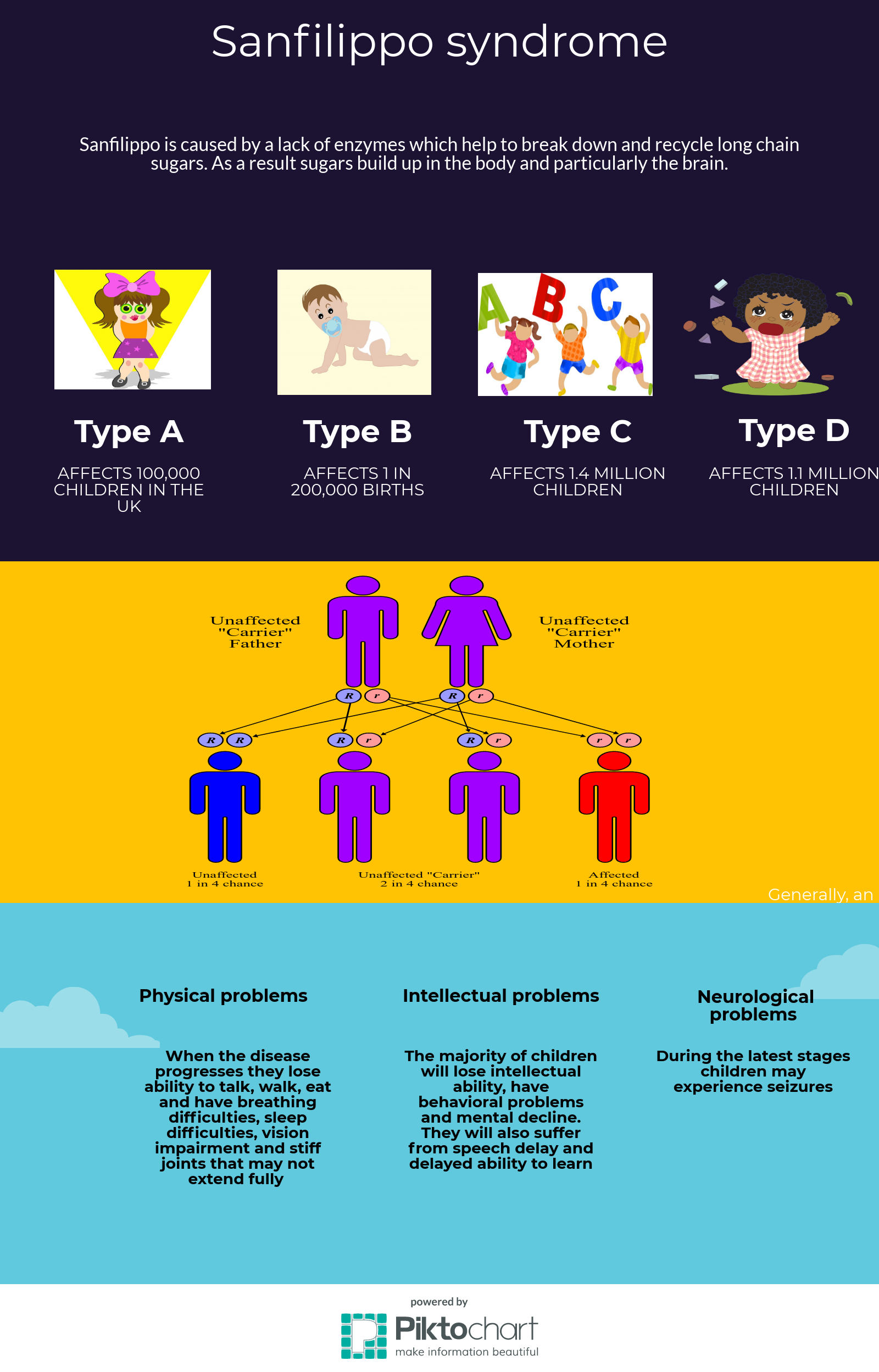SCIENTISTS from the University of Manchester have developed a technology that could bring first treatment for Sanfilippo disorder in children.
University of Manchester scientists believe that children suffering from Sanfilippo, a disorder that affects children’s brains, could be treated successfully.
Sanfilippo is caused by a lack of enzymes, which helps to break down and recycle long chain sugars and results in a build-up of sugars in the body and particularly the brain.
Affected Children
Affected children suffer from hyperactivity, speech loss, profound mental disability and eventually lose the ability to walk, talk or eat.
There are four types of Sanfilippo syndrome, Type A, B, C and D.
The most common of the four types, Sanfilippo Type A affects around 100 children in the UK, while Type B affects around one in 200,000 births.
Brian Bigger, Professor of Cell and Gene Therapy at The University of Manchester, said: “ Symptoms begin to show as soon as the age of two.
“Children will typically have behavioral abnormalities such as lack of sleep and mental decline. They end up being teenagers with the mind of a toddler.
“Those affected are very active, without a sense of danger and when the disease progresses they start to lose some of their physical functions.They usually make it until the age of 18.”
First Treatment
A stem cell gene therapy technology developed in Bigger’s laboratory will be used by Orchard Therapeutics, which has recently received an exclusive licence, to treat Sanfilippo syndrome Type B.

Bigger added: “The technology is equivalent of gene modifying somebody’s bone marrow. You take the bone marrow stem cells out of the body by taking blood.
“Then, you purify the stem cells by inserting a modified gene. You are basically replacing the original gene and put the cells back in.
“Patients have to go through chemotherapy in order for the cells to engraft and correct some of the neuron brain cells.
“We hope that this will be transformative for patients.”
Possible Success
If the treatment is successful, it makes a life and death difference for the patients.
Manchester scientists will be able to prove a principle; they can get bone marrow stem cells to engraft on the brain and correct neurological diseases.
It will also push forward to treat other childhood forms of dementia and other diseases such as Parkinson’s and Alzheimer’s.
It opens up a number of possibilities; Manchester can be at the forth front of innovation and Gene and Cell therapy in the UK.
However, Bigger stressed that it is important to ‘be realistic and not to get patient’s expectations too high as to what the effect might be, before the clinical trials happen.’
The new stem cell gene therapy was recently published in the journal Brain.
For more information listen to Brian Bigger’s interview.















Recent Comments